
Following Yesterday’s Story, The NCAA Has Finally Suspended Max Air’s 737 Fleet
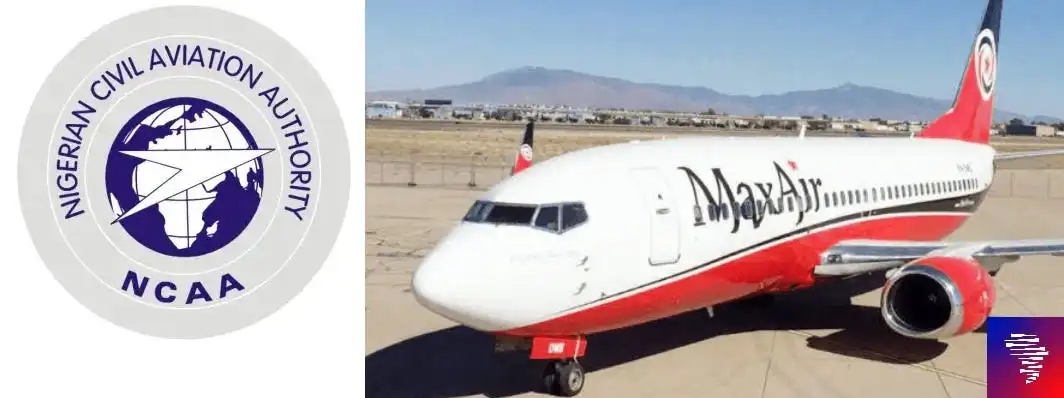
The Nigerian Civil Aviation Authority (NCAA) has responded decisively to yesterday’s exclusive report on West Africa Weekly, which spotlighted alarming safety and procedural breaches at Max Air and Aero Contractors. The regulator has issued a grounding order to Max Air’s Boeing 737 fleet, made up of 6 airframes, on the basis of serious and persistent safety violations.
In a letter dated July 12, 2023, the NCAA informed Max Air that it has withdrawn its operating permissions for the Boeing 737 aircraft type in the airline’s fleet. The safety incidents cited as grounds for the directive were the fuel contamination incident in Yola highlighted in yesterday’s report, an emergency return due to a cockpit incident in the same 737 in Abuja 3 days later, a prior loss of landing gear by a different 737 in Abuja, and an aborted 737 takeoff in Kano on Monday July 11.

Founded 15 years ago in Kano by Nigerian oil and gas billionaire Dahiru Mangal, Max Air currently operates a fleet of 11 airframes which includes 6 Boeing 737, 2 Boeing 747, 1 Boeing 777, 1 Embraer ERJ-145LR and 1 Embraer EMB-135BJ Legacy 650.

As mentioned in the earlier report, the Boeing 737 is the aircraft of choice for most Nigerian airlines, because it offers the best available mix of low fuel consumption and relatively high capacity that make Nigeria’s short and medium range aviation routes viable. As a result, it forms the backbone of Max Air’s local flight operations, as it does for most other Nigerian carriers.
Max Air has also operated the 747 since 2016, primarily for the purpose of ferrying Hajj pilgrims to Saudi Arabia. Despite having one of the patchiest safety records in Nigerian aviation, it somehow wins government tenders for Hajj pilgrimage charter flights every year, including most recently in May 2023.
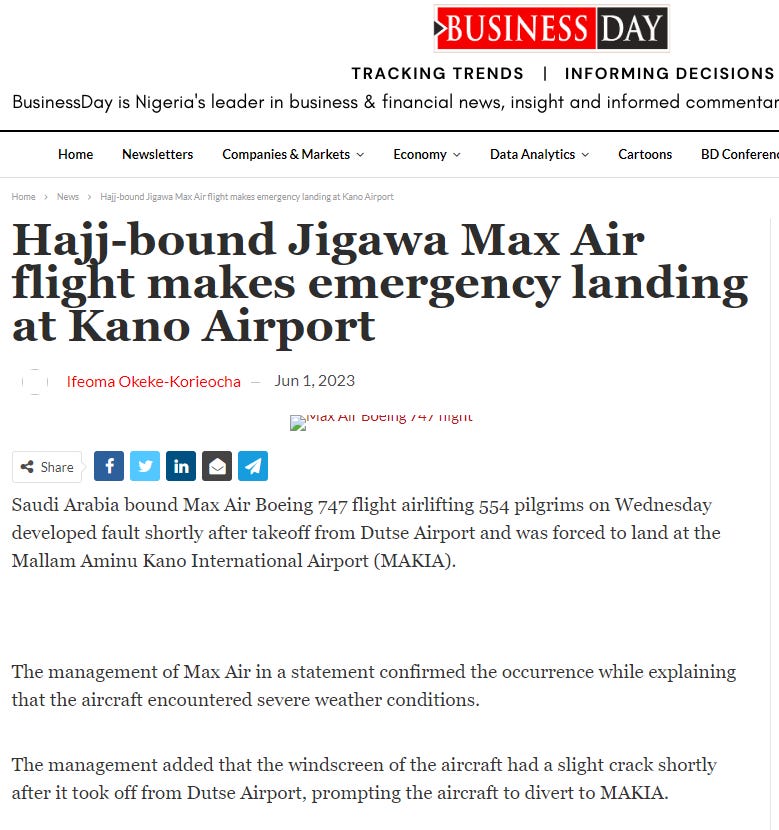
In June 2023, it took delivery of its first Boeing 777 – a long range twin-engine aircraft favoured by Emirates for its long-haul, hub-and-spoke flight operations. Ostensibly, this aircraft was acquired to assist with Max Air’s hajj airlift operations, with such little attention paid to its branding that it still flies using the branding of the aircraft’s previous owner Japan Airlines.

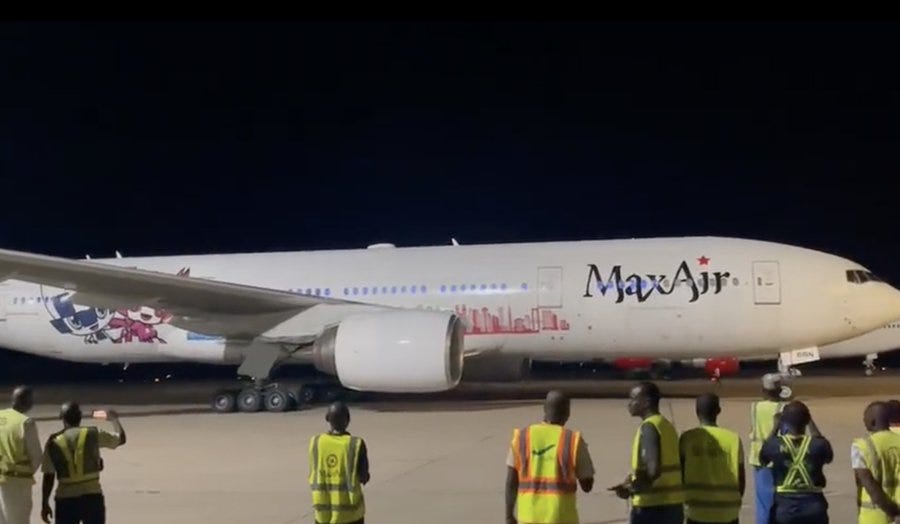
Meanwhile, in the absence of its 737 type, Max Air is now pressing its 747 and 777 aircrafts – which were designed specifically for long-range flights – into service on short and medium range routes, as confirmed by customers earlier this week.
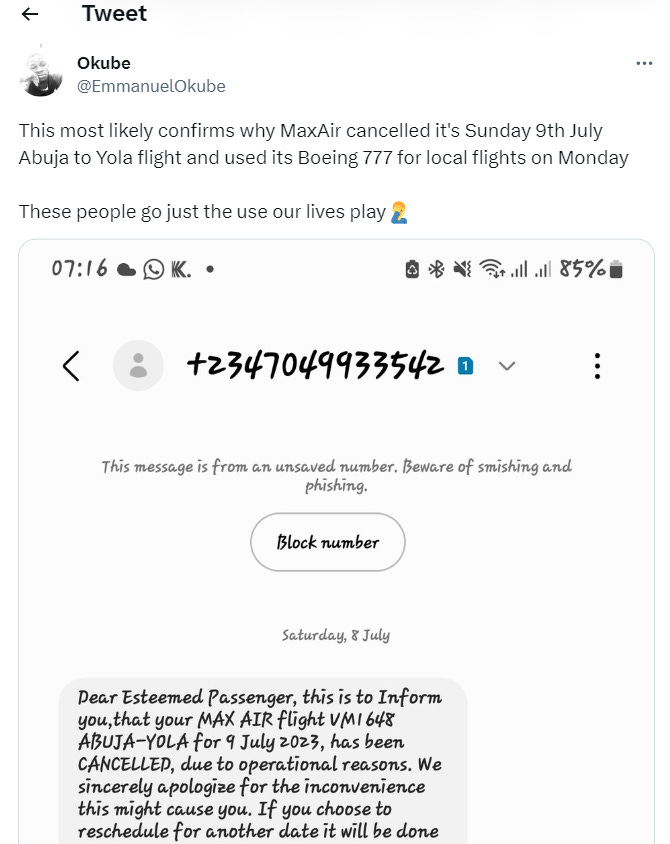
About The Author
Related Articles
Burkina Faso, Mali, and Niger Turn to Russia for Shared Telecom Network
Burkina Faso, Mali, and Niger have announced plans to develop the Sahel’s...
ByWest Africa WeeklyJanuary 23, 2026Ghana Orders Advanced ACH160 Helicopters to Bolster Security Aviation
Ghana has secured an order for a batch of the world’s most...
ByWest Africa WeeklyJanuary 19, 2026AES Confederation Launches Television Network in Push for Media Sovereignty
Meeting in Bamako, the three Heads of State of the Confederation of...
ByWest Africa WeeklyDecember 23, 2025Burkina Faso Grants Broadcast Frequency to AES Radio
Burkina Faso’s Superior Council of Communication has approved the allocation of a...
ByWest Africa WeeklyDecember 19, 2025








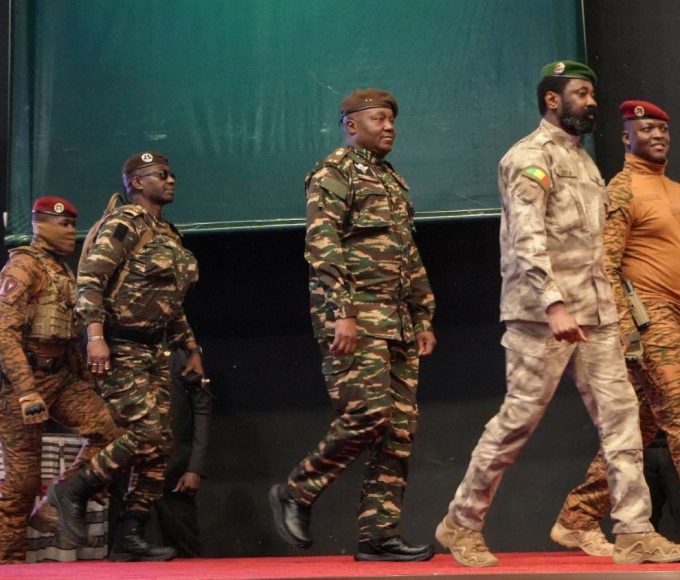
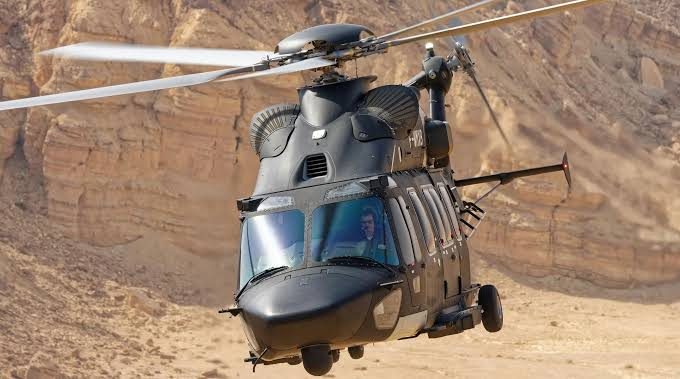


Leave a comment